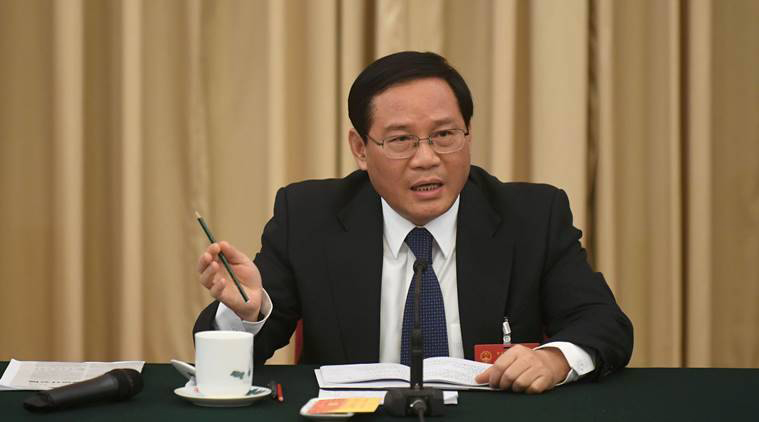BEIJING: One of President Xi Jinping's most trusted proteges, Li Qiang is almost certain to become China's next premier after he was unveiled as number two in the Communist Party hierarchy on Sunday. The Shanghai party boss leapfrogged over two other candidates seen as having more traditional qualifications for the role-a shock move confirming that Xi has stacked the party's Politburo Standing Committee, the highest echelon of power, with his allies.
Li's chances of getting such a high-ranking role were seen to have been endangered by the harsh two-month Shanghai lockdown he oversaw earlier this year, in which the financial hub's 25 million residents struggled to access food and basic medical care. "If proof were needed that loyalty trumps meritocracy in Xi's China, Li Qiang's elevation provides it," said Richard McGregor, senior fellow at the Lowy Institute in Sydney.
"Li might be quite capable, and may make a good premier, but it is hard to see how he got there other than through Xi's personal favour." Although it is not unusual for former Shanghai chiefs to be promoted to the party's top ranks, unlike almost all previous premiers, Li does not have experience at the central government level as a vice premier.
But he has rich local administration experience, having taken top leadership roles in the affluent provinces of Zhejiang and Jiangsu. Crucially, he served as Xi's chief of staff between 2004 and 2007 while he was the party boss of Zhejiang.
His rapid promotions since then reflect Xi's high degree of trust in him. He was parachuted into Jiangsu by Xi in 2016 after a corruption scandal took down several provincial officials, before becoming party secretary of Shanghai the following year.
Stalling economy
In his capacity as premier, Li would also act as the head of China's cabinet, the State Council. The role traditionally involves responsibility for the day-to-day running of the country, as well as macroeconomic policy. "(Li) was seen as a business-friendly local leader but it's questionable whether these skills will translate well to overseeing macroeconomic coordination and regulatory agendas as premier," said Neil Thomas, senior China analyst at Eurasia Group.
He would take the position at a time when the world's second-largest economy is faltering. Last week, the release of China's quarterly economic data was delayed without an official explanation. The International Monetary Fund predicts that China's GDP this year will reach 3.2 percent-the lowest since 1976, excluding the pandemic year of 2020.
The country's harsh zero-COVID policy-personally supported by Xi-has dampened consumption and disrupted production through frequent lockdowns of key ports and manufacturing hubs. Li's loyalty to Xi is viewed by many analysts as a way for the president to push through a conservative economic agenda.
The current premier, Li Keqiang-a trained economist-had his attempts at financial reforms curtailed by Xi's overwhelming authority. "Even though Li Keqiang has been playing an important role in recent months... he and Xi Jinping have been competitors for a long time," said Willy Lam, a political analyst and senior fellow at the Jamestown Foundation.
"Conservative economic policymaking will become dominant." The two people seen previously as potential successors-and of a similar ideological mindset to Li Keqiang-will not feature in the next Politburo at all. Former Standing Committee member Wang Yang is confirmed to be retiring, and Hu Chunhua, the current youngest vice premier who oversees agriculture, was left out of the new 24-member Politburo entirely.
Xi has repeatedly advocated his policy of "common prosperity", characterised by the reining in of excessive incomes in the entertainment and technology sectors, and the support for China's massive state-owned enterprises. It is aimed at reducing wealth inequality, but critics say the strategy harks back to Mao-era leftist policies. "It will be bad for the economy but ideologically what Xi Jinping wants," said Lam. - AFP











